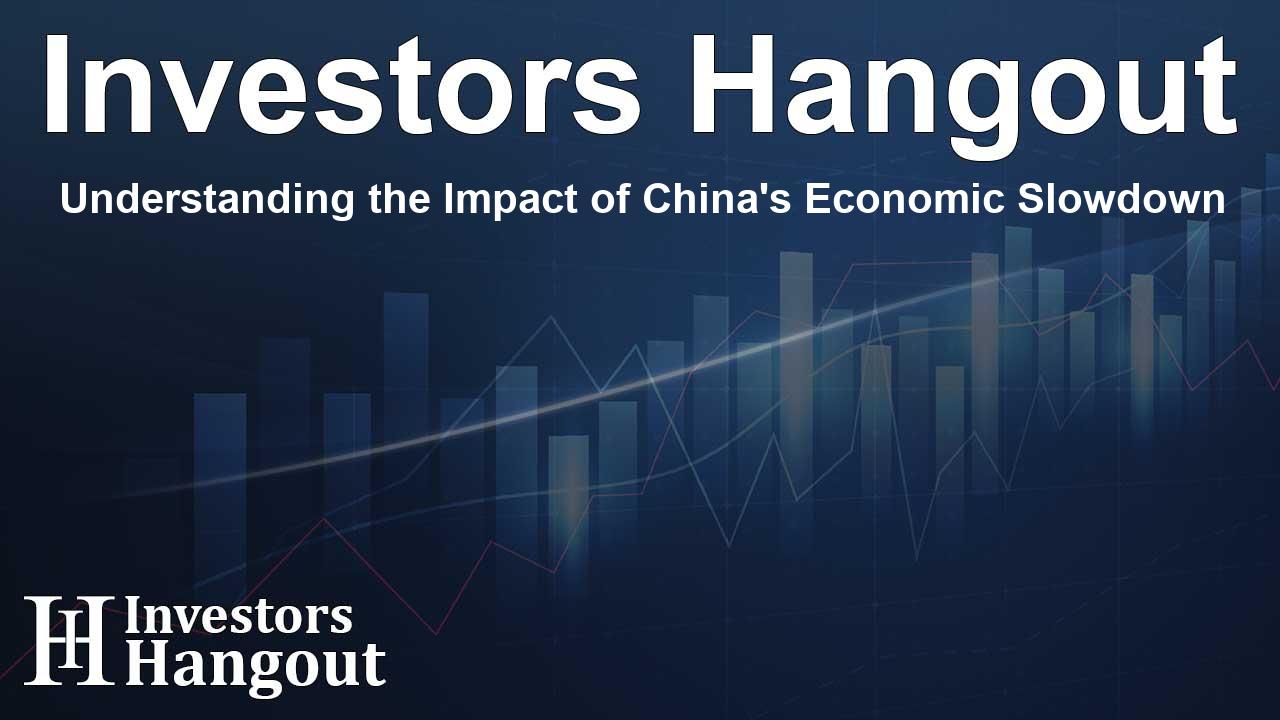Understanding the Impact of China's Economic Slowdown

The Impact of China's Economic Slowdown
Today’s global markets are heavily influenced by China's economic situation, rather than a recession in the United States. Right now, China's recession is poised to have a significant effect on multiple sectors, especially by lowering oil prices and changing the course of global bond yields.
How Oil Prices are Affected
Falling demand in China has led OPEC to lower its expectations for global oil demand. This change has resulted in a dramatic drop in oil prices, with Brent crude oil recently falling below $70 per barrel, marking the lowest it has been since December 2021.
The Impact of China's Demand
The sluggish consumer activity in China is largely responsible for these falling oil prices. As one of the biggest oil consumers in the world, any slowdown in China's economic growth directly translates to a decline in oil demand, which in turn affects pricing on a global scale.
The Effects on Global Bond Yields
As oil prices drop, they've also played a crucial role in pushing down yields on U.S. Treasury bonds. Recently, the 10-year Treasury yield fell to 3.65%, marking a notable reduction and returning to levels not seen since early 2023. Economic worries about potential risks often drive these trends.
Looking Back at Previous Trends
During times of financial uncertainty, like the brief banking crisis earlier this year, bond yield fluctuations are typical. Investors generally flock to safer assets such as Treasury bonds when facing potential risks, which leads to lower yields.
The Broader Economic Consequences
China’s economic difficulties don’t just influence oil prices and bond yields—they have far-reaching consequences for global economic stability. Many countries rely on trade and investment from China, so when its economy slows down, it can create ripple effects throughout other economies.
The Impact on Global Trade and Investment
With diminishing demand from China, nations that largely depend on exporting to China may face economic declines. This could impact job markets, manufacturing levels, and growth rates across various countries, ultimately creating hurdles for global economic recovery.
Final Thoughts
In summary, the current economic landscape is significantly shaped by China's recession. As global markets respond to these changes, it's crucial for stakeholders to keep a close eye on developments. The reach of China's economy extends far beyond its borders, affecting everything from oil prices to bond yields and overall economic health.
Frequently Asked Questions
What factors are contributing to China's economic slowdown?
Several elements, including decreasing consumer demand, trade tensions, and internal economic policies, are driving China's current economic issues.
How does China's economic situation affect global oil prices?
As a leading oil consumer, a decrease in demand from China results in lower global oil prices, prompting OPEC to revise production forecasts.
What is the relationship between oil prices and bond yields?
Generally, when oil prices decline, it can lead to lower inflation expectations, which causes bond yields to fall as investors look for safer assets.
Why should investors be concerned about China's economy?
China's economic well-being is crucial because it has a significant impact on global trade and investment, which can affect markets and economies across the world.
What are the potential long-term impacts of China's recession on the global economy?
Long-term effects could include slower growth in various regions, changes in trade dynamics, and possible financial instability if economic challenges continue.
About The Author
Contact Riley Hayes privately here. Or send an email with ATTN: Riley Hayes as the subject to contact@investorshangout.com.
About Investors Hangout
Investors Hangout is a leading online stock forum for financial discussion and learning, offering a wide range of free tools and resources. It draws in traders of all levels, who exchange market knowledge, investigate trading tactics, and keep an eye on industry developments in real time. Featuring financial articles, stock message boards, quotes, charts, company profiles, and live news updates. Through cooperative learning and a wealth of informational resources, it helps users from novices creating their first portfolios to experts honing their techniques. Join Investors Hangout today: https://investorshangout.com/
The content of this article is based on factual, publicly available information and does not represent legal, financial, or investment advice. Investors Hangout does not offer financial advice, and the author is not a licensed financial advisor. Consult a qualified advisor before making any financial or investment decisions based on this article. This article should not be considered advice to purchase, sell, or hold any securities or other investments. If any of the material provided here is inaccurate, please contact us for corrections.
